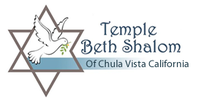Throughout his life, King proved to be a close friend of the Jewish community. He often noted the similarities existing between Jews and African-Americans. Both groups experienced hatred, prejudice, attacks from those wishing to harm them; both peoples worked together to overcome that hatred.
In this short article I will briefly touch on some of my favorite quotes Martin Luther King Jr concerning what it is the Jewish and non-Jewish community is up against. Simply put, we are fighting for the soul of our nation. Many of King’s quotes highlight the warm feelings he felt for the Jewish people and the State of Israel.
King proved to be a relentless foe against anti-Semitism and racism. He observed that the Hitler archetype is alive in well—even in the United States.
- There are Hitlers loose in America today, both in high and low places… As the tensions and bewilderment of economic problems become more severe, history(‘s) scapegoats, the Jews, will be joined by new scapegoats, the Negroes. The Hitlers will seek to divert people’s minds and turn their frustration and anger to the helpless, to the outnumbered. Then whether the Negro and Jew shall live in peace will depend upon how firmly they resist, how effectively they reach the minds of the decent Americans to halt this deadly diversion….[1]
Because of the Jewish advocacy for civil rights, between November 1957, and October 1958, there were bombings and attempted bombings in seven Jewish communities in the South. North Carolina had two such incidents; there were two more in Florida, and one in Tennessee and Georgia (where Atlanta’s Hebrew Benevolent Congregation Temple sustained almost $200,000 in damages in the last of the 11-month rash of attacks). Alabama synagogues were also targeted—particularly, Temple Beth-El of Birmingham’s was a bombing target on April 28, 1958. Fortunately, weather conditions fizzled the fuse—one minute before it would have detonated. Experts said the explosion would have killed scores of people. The bomb itself was said to be three times more powerful than the one that would kill four young black girls at 16th Street Baptist Church in 1963. It could have demolished not only the synagogue, by also several nearby structures.[3]
King respected the dangers the Jewish community put itself in for championing civil rights. At the Rabbinical Assembly Convention of 1968, King observed, “Probably more than any other ethnic group, the Jewish community has been sympathetic and has stood as an ally to the Negro in his struggle for justice.”
On October 27, 1967, at a Civil Rights rally in Boston, King boldly said, “When people criticize Zionists, they mean Jews. You’re talking anti-Semitism!”
When people criticize Zionists, they mean Jews. You’re talking anti-Semitism!”
In 1958, King spoke to the American Jewish Committee, and pointed out, “My people were brought to America in chains. Your people were driven here to escape the chains fashioned for them in Europe. Our unity is born of our common struggle for centuries, not only to rid ourselves of bondage, but to make oppression of any people by others an impossibility.”
King loved to write about the Israelites experience in Egypt and its moral message for the African-American individual. For me, one of King’s most memorable sermons he presented a sermon on the subject, “The Death of Evil upon the Seashore.” King’s comments vividly portray the flight of Hebrew slaves from Egypt: He observed,
- Egypt symbolized evil in the form of humiliating oppression, ungodly exploitation, and crushing domination.” But then, the wonderful event occurred, and ‘when the Israelites looked back, all they could see was here and there a poor drowned body beaten upon the seashore.’ For the Israelites, this was a great moment... It was a joyous daybreak that had come to end the long night of their captivity . . . The meaning of this story is not found in the drowning of Egyptian soldiers, for no one should rejoice at the death or defeat of a human being. Rather, this story symbolizes the death of evil and of inhuman oppression and unjust exploitation.[4]
This last remark is what we need to remember when combatting anti-Semitism. Today, anti-Semitic attacks seem to becoming fashionable once more in our society. We need to root out the intolerance that is affecting our society. This approach offers the best medicine for the hatred we are witnessing in the world today, as Jews in the 21st century experience a resurging anti-Semitism.
Evil people will always exist, but we must do our part to thwart them.
On a personal note, Martin Luther King’s heroism inspired me to decide becoming a rabbi when I was barely fourteen years old.
[1] Cited from Marc Schneier, Shared Dreams: Martin Luther King, Jr. and the Jewish Community (Woodstock VT: Jewish Lights Publishing, 1999), p. 35.
[2] Martin Luther, Clayborne Carson (ed.), The Papers of Martin Luther King, Jr., Volume IV: Symbol of the Movement, January 1957-December 1958 (Berkeley: University of California Press; First edition, 2000), p. 408.
[3] https://weldbham.com/blog/2012/09/19/54-sticks-of-dynamite-the-bomb-at-temple-beth-el/
[4] Martin Luther King, Jr, The Strength to Love (New York: Harper & Row, 1963; Pocketbook Edition, 1964), pp. 71-8

 RSS Feed
RSS Feed
